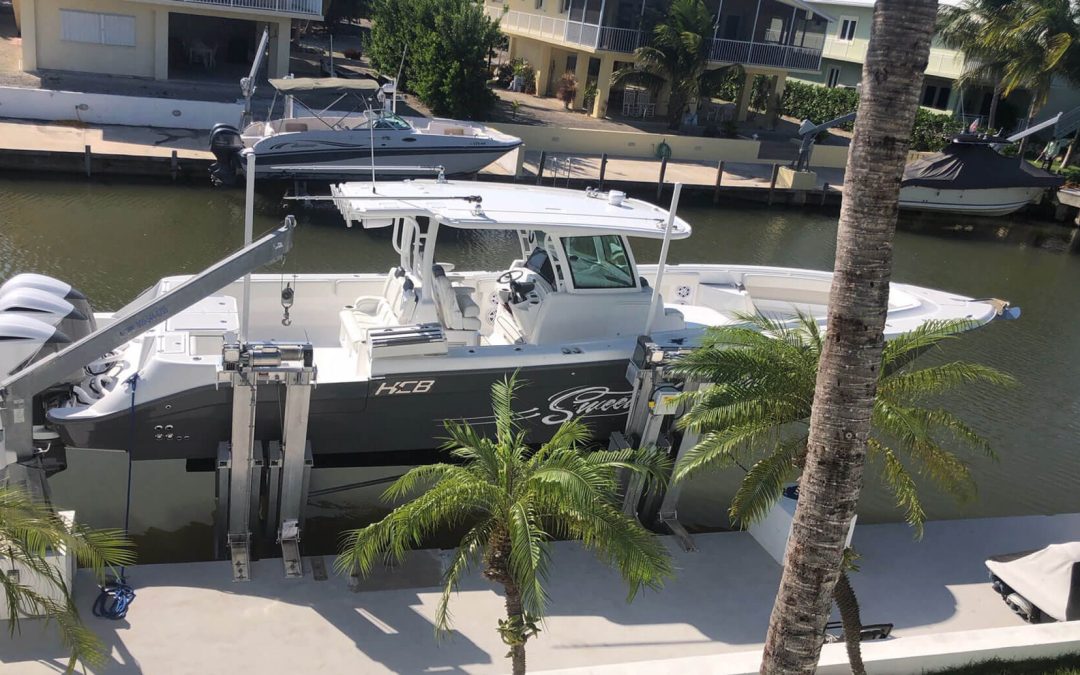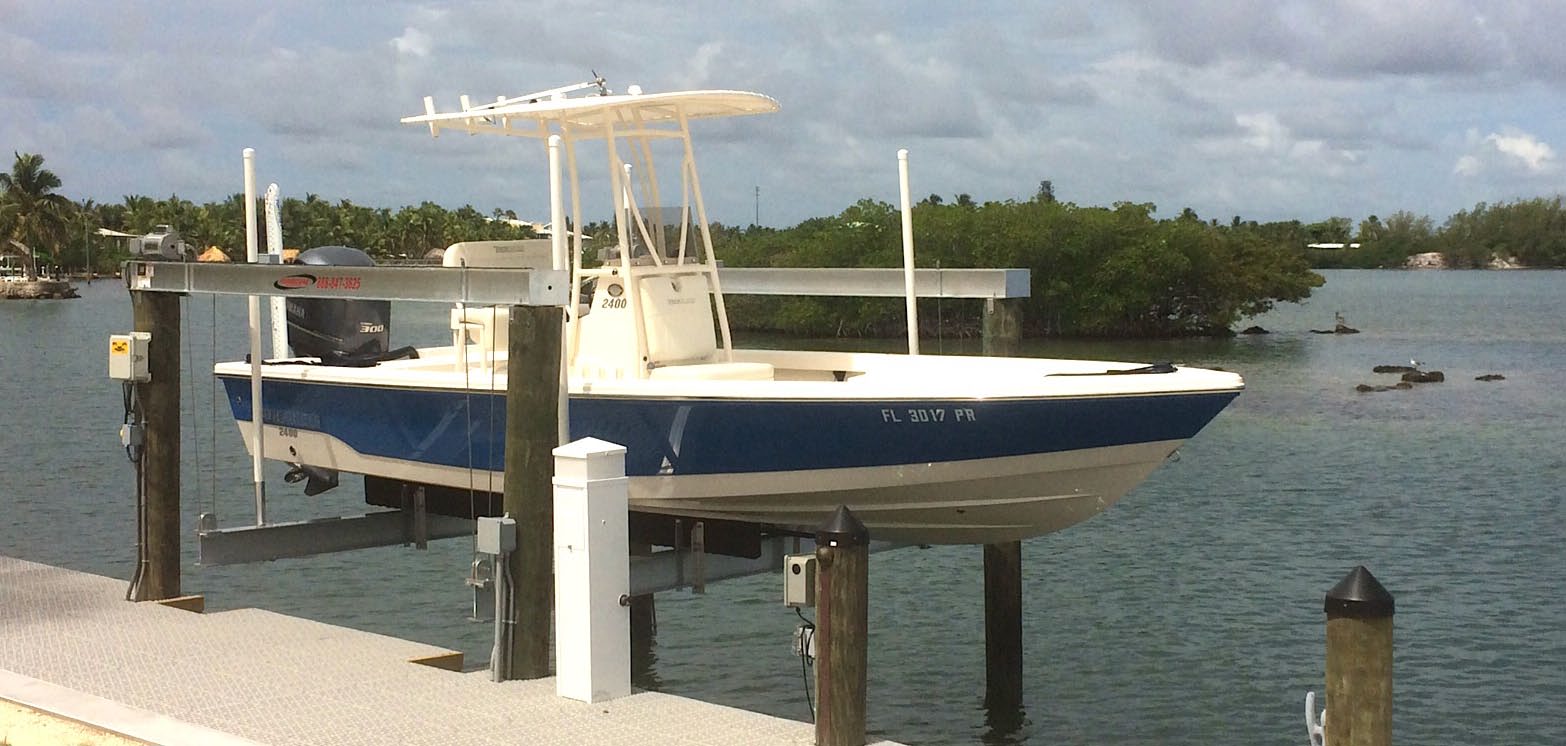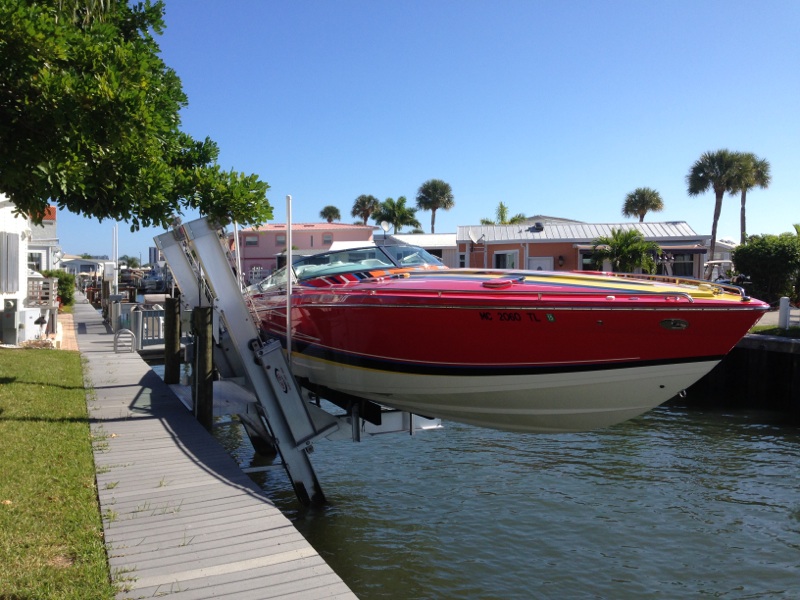As a boat owner, it’s essential to understand the potential risks your watercraft may face, especially if you dock it in saltwater. One common concern is whether saltwater can damage a boat lift. In this blog post, we will explore this topic and debunk some of the prevailing myths surrounding the impact of saltwater on boat lifts in Stuart.
Understanding Boat Lift Construction
Before delving into the potential effects of saltwater on boat lifts, let’s briefly discuss their construction. Boat lifts are typically built using durable materials such as aluminum, stainless steel, or galvanized steel. These materials are chosen for their resistance to corrosion and their ability to withstand harsh environments, including saltwater exposure. Additionally, boat lifts often have protective coatings or treatments that enhance their durability, further reducing the risk of damage.
Corrosion Resistance
Saltwater is known to accelerate corrosion, making it a legitimate concern for boat owners. However, when it comes to boat lifts, the risk of damage due to saltwater exposure is often exaggerated. Modern boat lifts are specifically designed to withstand the corrosive effects of saltwater. Aluminum boat lifts, for instance, are particularly resistant to corrosion, thanks to their natural oxide layer that forms on the surface, protecting the underlying metal.
Regular Maintenance
To ensure the longevity of a boat lift in a saltwater environment, regular maintenance is crucial. Periodic inspections should be performed to identify any signs of corrosion or damage. Cleaning the boat lift with fresh water after each use is also recommended to remove salt residue. Additionally, lubricating moving parts and checking for loose bolts or fasteners will help prevent potential issues.
Protective Measures
Boat lift manufacturers often offer additional protective measures to mitigate the impact of saltwater exposure. These may include galvanization, epoxy coatings, or sacrificial anodes. Galvanization involves applying a zinc coating to the boat lift, providing an extra layer of protection against corrosion. Epoxy coatings create a barrier between the metal and saltwater. Sacrificial anodes, made from metals like zinc or aluminum, help divert corrosion away from the critical components of the boat lift.
Environmental Factors
While boat lifts are designed to withstand saltwater exposure, other environmental factors can contribute to potential damage. For instance, constant exposure to high waves, strong currents, or marine organisms can affect the boat lift’s integrity. It’s important to consider these factors and choose a boat lift that suits the specific conditions of your docking area.
Do You Need a High-Quality Boat Lift in Stuart?
The notion that saltwater inevitably damages boat lifts is a misconception. Thanks to advancements in materials, construction techniques, and protective measures, boat lifts are now designed to withstand the corrosive effects of saltwater. While regular maintenance and care are essential, boat owners can confidently enjoy the convenience and benefits of a boat lift even in saltwater environments.
At Hurricane Boat Lifts, we suit the specific conditions of your docking area and consider environmental factors that may contribute to potential damage. By taking these precautions, we can ensure the longevity and functionality of your boat lift, allowing for worry-free boating experiences. Call us now for orders!



